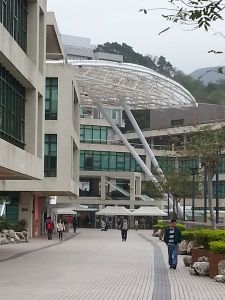 Finally the subject guides are finished! With that job out of the way I was left with a presentation on book talks and motivating readers and updating the ProQuest search guide. Looking at the guide I think Joey had done most of it. I looked it over and added a few bits about Boolean search terms but I think that is it. I’ll take another look on Monday just to double check.
Finally the subject guides are finished! With that job out of the way I was left with a presentation on book talks and motivating readers and updating the ProQuest search guide. Looking at the guide I think Joey had done most of it. I looked it over and added a few bits about Boolean search terms but I think that is it. I’ll take another look on Monday just to double check.
The library tour that I was supposed to take part in was cancelled today but I believe there is a large group on Monday to take around. I will only playing a supporting role, thank goodness as I don’t really know enough about the place yet.
The most interesting part of today was meeting Belinda from lending services. Now most people think librarians are check out chicks but believe me after sitting for an hour with Belinda I was stunned at the amount of work involved.
Over 20 staff work in the lending service section alone. More are employed on a casual basis during times of high demand such as the lead up to exams or assignment time. There are over 50,000 items to reshelve monthly with 28,000 of those being returns. My jaw hit the floor on hearing that as I have around 25,000 to 30,000 items in total. Circulation is not really that simple either. There are book drop services, inter library loans, inter campus deliveries and other items borrowed through the JULAC card and the document delivery services.
This means lots of collaboration between other librarians. 40 libraries are part of the document delivery service and this is linked to a worldwide network that attempts to get a document within 24 hours! I wondered if there was now less demand for documents due to the amount that is offered online, however many Chinese journals do not have electronic copies and older journals may not yet have been digitalised. The document delivery service also is a useful tool when new courses start. The collection may be quite small in the new area and may not be able to grow fast enough. If this is the case the document delivery service becomes a very useful tool enabling patrons to access the information they need quickly and efficently. All deliveries have to be ready by a set time as the courier only comes once a day due to the Institutes location. (some 40 k out of town)
Facility management and displays are also a part of this departments work load.
As with many libraries space is an issue and stake management and maintenance can be challenging. recently the intown library relocated and this meant 50,000 more items have to be shelved. Withdrawal and weeding is complex. There are set policies and procedures to follow including meeting with the library collection developemnt committe re any withdrawals. This is then taken to faculty level and other libraries within HK are asked if they would like the materials. The finance office must also be involved as it is the disposing of materials. It is not an afternoon job!
Books that are damaged do not have a high priority. The preference is to buy another copy unless it can not be replaced. time constraints mean that there is time to spend on fixing texts. belinda said this was particluarly true of materials for the children as they disliked borrowing damaged items.
The reserve collection is also managed by Belinda and her team. This means changing the catalogue each time new material is added to the course list and ensuring that the online lists are accurate.
Displays, patron records, library cards, monetary transactions including fines and missing items, are also dealt with here.
Ibooking of study rooms and group discussion rooms are monitored but this has to be done manually as the software is unable to detect if the room is actually being used. if the room is not used a member of staff has to change the booking to allow others access.